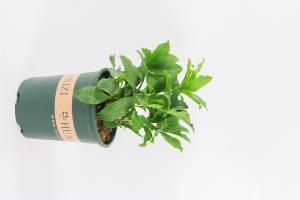Does Pool Water Harm Plants?
Having a pool in your backyard can be a great source of fun for the family during the hot summer months. However, have you ever wondered if the pool water can harm your plants? The answer is yes. In this article, we will explore how pool water affects plants and what you can do to minimize the damage.
Chlorine and pH Levels
Chlorine is a chemical commonly used to disinfect pool water. When this chemical comes into contact with plant leaves or roots, it can cause burns or yellowing of the leaves. Moreover, the chlorine in the pool water can change the pH level of the soil, making it more acidic. This acidic environment can be harmful to some plants, making it difficult for them to absorb nutrients from the soil. As a result, the plants may become stunted or die.
Splash-Out and Runoff
When water splashes out of the pool, it carries with it any chemicals present in the water. This chemical-laden water can end up on plants surrounding the pool, causing damage to the leaves and roots. Additionally, when it rains, the runoff water from the pool can also carry the chemicals with it, contaminating the soil and negatively affecting the plants.
Prevention and Solutions
To prevent and minimize the damage to your plants caused by pool water, there are several solutions you can implement. Firstly, you can plant trees, shrubs or other plants that are tolerant to chlorine around your pool. These plants are usually those that have waxy leaves, such as junipers or evergreens, or those with succulent leaves, such as cacti. Secondly, you can create a buffer zone between the pool area and your plants. This can be done by planting a row of hedges or erecting a fence to create a physical barrier between the two areas. Finally, you can also tilt the pool slightly to direct the runoff water away from your plants.
Another way to reduce the harmful effects of pool water on plants is to use a saltwater pool. Saltwater pools use a process called electrolysis to convert salt into chlorine. The amount of chlorine produced is much smaller than that in traditional pools, making it less likely to harm plants. Moreover, the pH level is usually more stable in saltwater pools, making it less likely to affect the soil's acidity.
Conclusion
Overall, pool water can harm plants in various ways. The chlorine in the water can cause burns or yellowing of the leaves, while the runoff water can contaminate the soil and negatively affect the plants. However, there are several solutions you can implement to minimize the damage, such as planting tolerant plants, creating a buffer zone, tilting the pool to direct runoff water away from plants, or using a saltwater pool. By taking these measures, you can enjoy your pool and keep your plants looking healthy.

 how many times do yo...
how many times do yo... how many planted tre...
how many planted tre... how many pine trees ...
how many pine trees ... how many pecan trees...
how many pecan trees... how many plants comp...
how many plants comp... how many plants can ...
how many plants can ... how many plants and ...
how many plants and ... how many pepper plan...
how many pepper plan...































